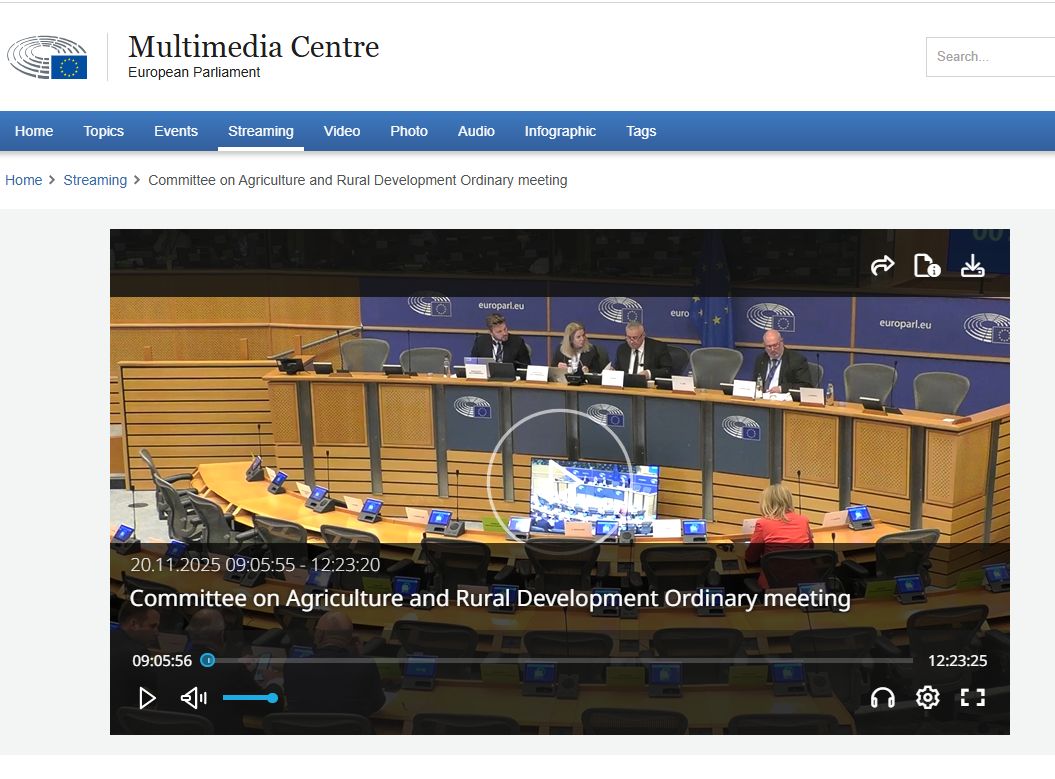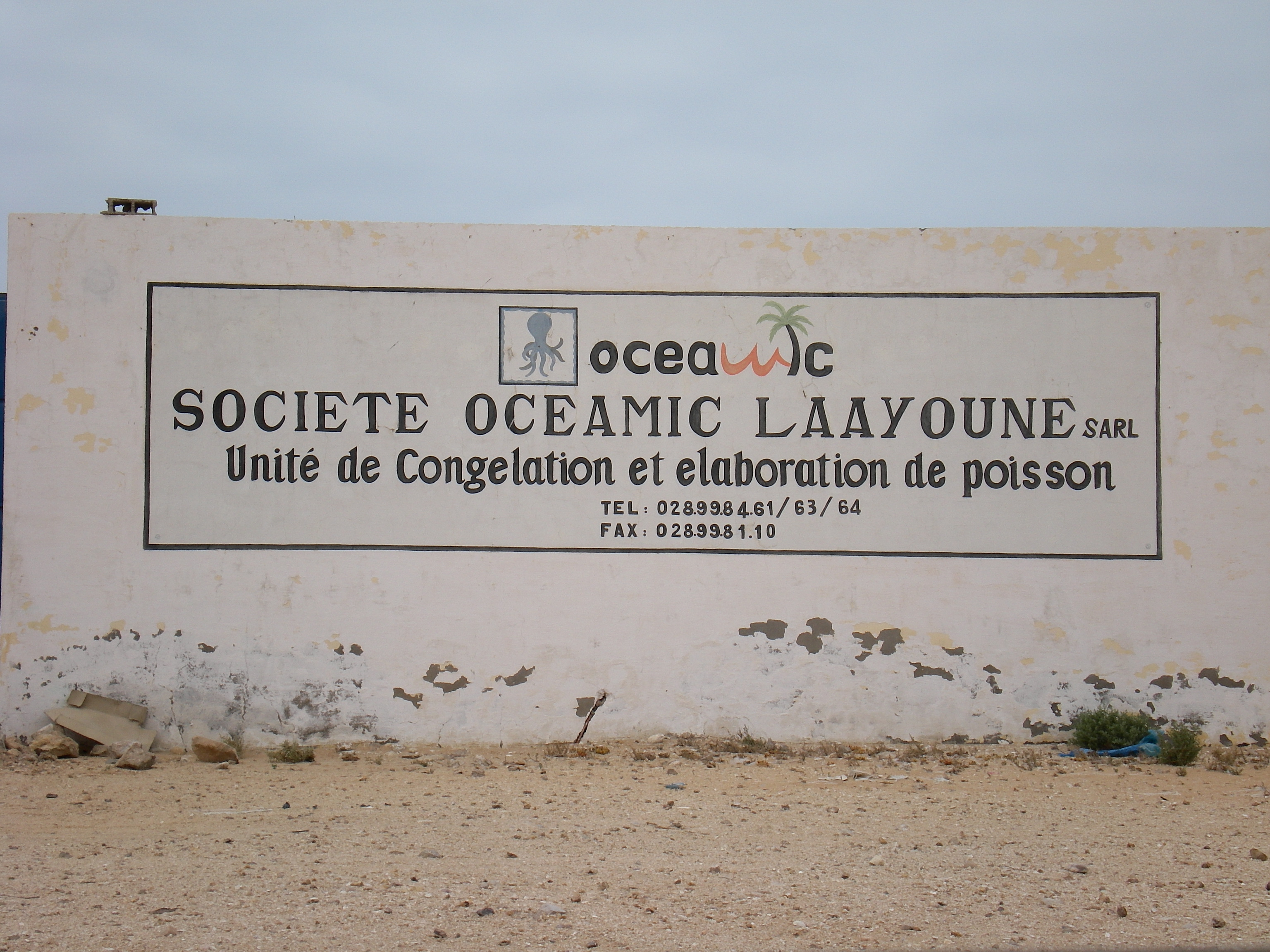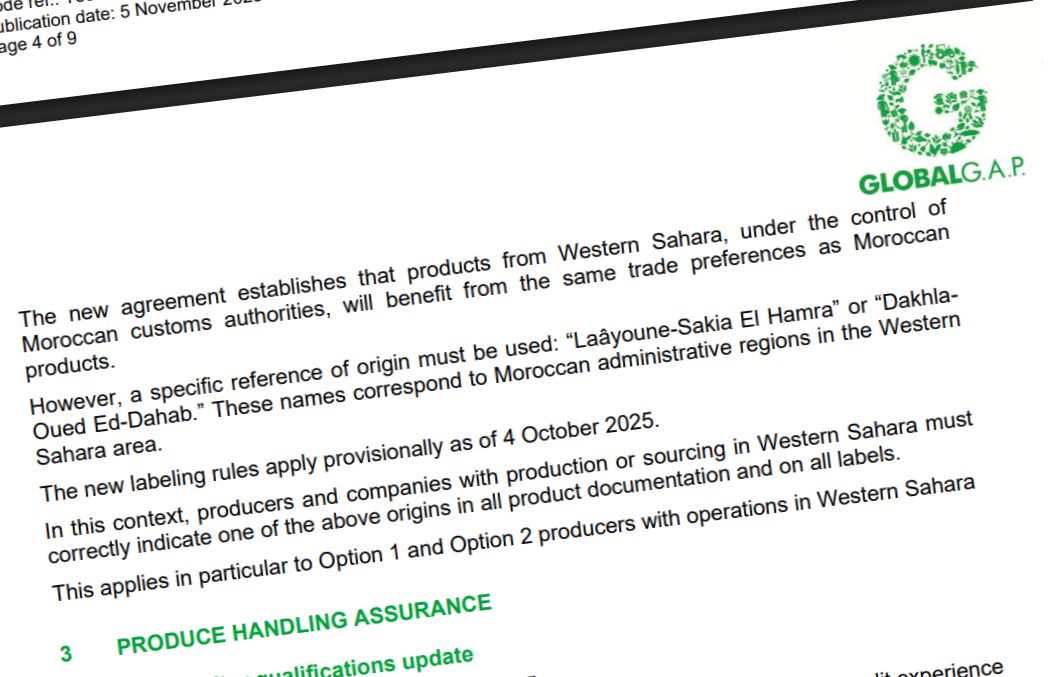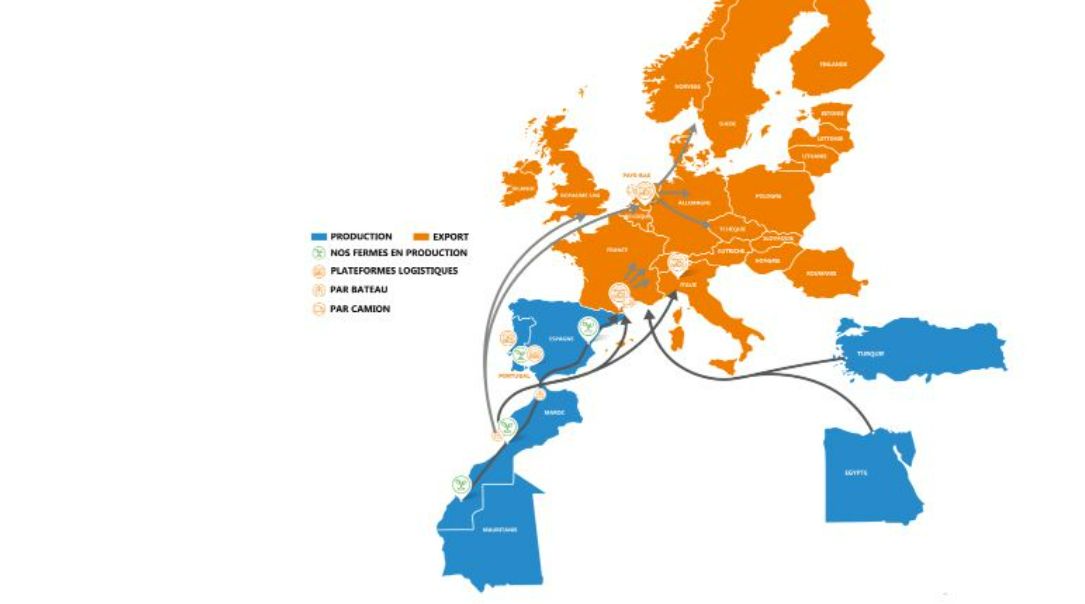
Representatives from all political groups in the European Parliament today grilled the European Commission over bending EU rules to appease Morocco with regard to labelling of products from occupied Western Sahara.
The European Parliament’s Committee on Agriculture and Rural Development (AGRI) held an extraordinary debate today as the European Commission attempted to defend its highly controversial Delegated Regulation on origin labelling for fruit and vegetables originating in occupied Western Sahara.
The proposal seeks to amend Delegated Regulation (EU) 2023/2429 to introduce a derogation from the EU’s origin-labelling rules. Instead of indicating the country of origin - which the Court of Justice of the EU (CJEU) says must be Western Sahara - products would instead be labelled with so-called “regions of origin”: “Laayoune-Sakia El Hamra” and “Dakhla-Oued Eddahab”. These are administrative divisions imposed by Morocco in a territory over which it has no sovereignty.
MEPs across the political spectrum - EPP, Greens, The Left, Patriots for Europe - reacted with rare unanimity: the proposal is legally indefensible, contradicts the CJEU’s rulings, misleads consumers, and rewards Morocco’s illegal occupation.
A cross-party objection to the Delegated Regulation has now been tabled for next Wednesday’s plenary session - including by the EPP Group.
The screening of today’s session can be seen on the European Parliament website.
Commission admits it is introducing a derogation from normal EU rules
Presenting the proposal, Brigitte Misonne, Deputy Director-General at DG AGRI, openly acknowledged that the Commission is departing from the EU’s own rules on origin labelling: “So the derogation to the normal rule which is to indicate the country of origin… Here, we had to introduce a derogation.”
She then stated that this new system of replacing “Western Sahara” with Moroccan administrative regions, was not derived from EU law or the Court ruling, but from talks with Morocco: “Opting for the indication of the regional origin on the label has been the result of negotiations with Morocco.”
This admission prompted immediate outrage in the room. Italian EPP MEP Herbert Dorfmann interjected: “Exactly, that is the problem. There is a judgment. The European Commission cannot deal a judgement with the government of Morocco. This is ridiculous.”
Commission mischaracterises Court ruling, calls Western Sahara ‘part of a Country’
In explaining why it chose to alter the legislation, the Commission representative stated:
“As the Court was ruling and putting the emphasis on Western Sahara, part of a country, we could not leave the legislation unchanged…”
This description - that Western Sahara is “part of a country” - is contrary to international law, to decades of UN positions, and to the Court of Justice itself, which has repeatedly held that Western Sahara is a “separate and distinct” territory from Morocco. It also contradicts the Commission’s own arguments before the Court, where it has recognised that Western Sahara is not part of Morocco.
Despite acknowledging that the Court “requires the indication of Western Sahara as origin”, the Commission has chosen not to follow the ruling, opting instead for terms negotiated with the occupying power.
This contradiction did not go unnoticed by MEPs. Representatives of all parties heavily criticized the approach. Not a single MEP defended the Commission’s approach to circumvent its highest court.
“Bare-faced Cheek”, “Betrayal of Consumers”, “Against International Law”
Herbert Dorfmann (Italy, EPP) sharply questioned how the Commission could possibly claim legal compliance: “I'm surprised at the bare-faced cheek of the European Commission and the way it is ignoring the ECJ rulings with free trade agreements.” He also challenged the supposed “benefits to the Saharawi people” claimed under the agreement: “What the treaty now says is that the advantage here is that the European Union will build a desalination plant in Western Sahara to produce water for tomatoes to be exported to the European Union. What is the benefit for the people of the Western Sahara? It really begs that question.”
From a very different political angle, Mireia Borrás Pabón (Spain, Patriots for Europe), came to the same conclusion: “After a year in this Parliament, championing European farming, we've seen a lot… What we've yet to see is this level of bare-faced cheek”. She added that “We are here to defend farming, but you're defending the interests of a third country, flouting an ECJ ruling. That ruling was crystal clear. Extending duty-free access to Morocco would be illegal, and anything from Western Sahara should solely indicate as origin ‘Western Sahara’. That is in line with the ruling. Let me read it out. I believe that what the Commission is doing flouts the legal ruling of the ECJ.” “We are here to defend European farmers and consumers. We are not the Moroccan trade office.”
Thomas Waitz (Austria, Greens/EFA) underlined that the Commission knowingly disregarded international law: “You knew that it's against international law. And now you're coming back with a proposal that, in my assessment, is again against international law”.
He questioned the usefulness of Moroccan regional names for the territory it occupies: “Who knows in the European Union these two Arabic names of two regions? This is a betrayal on our consumers. There needs to be transparency from which country these products come from.”
“Sorry, but this is not along international law. And it's us Europeans that are very often advocating to stand with international law. We should take ourselves serious and do the very same thing when it comes to agricultural products from Western Sahara. That's where they come from. That's how they need to be labelled.”
Luke Ming Flanagan (Ireland, The Left) stressed the institutional implications: “you hear all the MEPs, the elected people, whether you like them or not, we're all elected here, going in one direction, and the Commission going in a different direction. And this is even bigger than this issue alone. This is about who makes the decisions in the European Union.”
The Left / INTA Rapporteur (Lynn Boylan) raised fundamental legal questions: “Why is internal EU labelling policy being made subject to an agreement with Morocco? Are there precedents? How can this be compliant with the judgement of the Court, which clearly required that Western Sahara should be used?” She warned that the Commission’s approach risks another defeat in the CJEU, damaging EU credibility.
Committee Chair Daniel Buda (EPP) repeatedly urged the Commission to explain how its plan could possibly be compatible with binding CJEU judgments: “Anyone following us may rightly wonder how it is possible that the European Commission is breaching a decision adopted by the European Court of Justice.”
The Commission conceded it could not address the legal objections raised and promised to respond in writing - without committing to a timeline.
MEPs requested the written reply before Tuesday, ahead of a plenary vote on 26 November on an objection to the Delegated Regulation supported by multiple political groups, including the EPP, the largest group in Parliament.
The level of cross-party anger is highly unusual and signals serious institutional concerns about compromising consumer protection, undermining binding CJEU case law and changing internal EU legislation solely to avoid naming Western Sahara.
With an objection now tabled and a plenary vote looming, the controversy surrounding the EU–Morocco trade arrangement - and the EU’s responsibilities toward the people of Western Sahara - is set to intensify in the days ahead.
A full transcript, made by WSRW, of the exchange of views with the EU Commission on the Commission's Delegated Regulation, in the AGRI committee of 20 November 2025, is available here.
Since you're here....
WSRW’s work is being read and used more than ever. We work totally independently and to a large extent voluntarily. Our work takes time, dedication and diligence. But we do it because we believe it matters – and we hope you do too. We look for more monthly donors to support our work. If you'd like to contribute to our work – 3€, 5€, 8€ monthly… what you can spare – the future of WSRW would be much more secure. You can set up a monthly donation to WSRW quickly here.
New report: Certified occupation
International certification standards embellish Morocco’s controversial trade with fisheries and agricultural products in occupied Western Sahara, new report documents.
BRCGS fails accountability test
Despite repeated requests, the organisation does not clarify why its food safety certificate ignores legal boundaries.
GLOBALG.A.P. misleads EU retailers
The certification scheme that claims to champion legal compliance has circulated misleading information about EU labelling rules for products originating from occupied Western Sahara.



